Up and Down the Kennebec Valley: Fletcher family
by Mary Grow
First, here is an update on last week’s article about lawyer Sanford A. Kingsbury, who supposedly practiced in China. Readers may remember that in 1835, he was opening mills on Kingsbury Pond, in the plantation named after him, some 50 miles from Waterville (and another five miles or so from China).
Apparently he remained involved in China, despite the distance.
The China bicentennial history says a steam mill near China Village, at the head of China Lake, started grinding corn in 1835 and received a legislative charter in 1836 (allowing its owners to grind grain of all kinds; saw lumber; and make things of “iron, steel, cotton or wool”). Kingsbury is listed among the company’s shareholders.
In 1837, Kingsbury and five other men “were incorporated as the China Manufacturing Company, with the right to manufacture leather, cotton, wool, or paper; apparently this corporation remained on paper only,” the history says.
(Your writer excuses herself for not finding this information a week ago: as she said then, Sanford Kingsbury is not listed in the index to the China history, and only by happenstance did she find his name in the text.)
* * * * * *
An alert reader commented on last week’s article mentioning a lawyer named Abisha Benson and, later, lawyer Alfred Fletcher’s brother named Abisha Benson Fletcher.
Your writer’s surmise (based on no evidence) is that Abisha Fletcher’s parents named their son in honor of the lawyer. The timing works: Abisha Benson was practicing in China in the 1820s, and Abisha Benson Fletcher was born in China in 1822.
A summary check on Abisha Fletcher’s parents, Colonel Robert and Nancy (Sprague) Fletcher, identified Robert as a prominent China citizen, who might well have been friends with, and perhaps wished to show respect for, a local lawyer.
Following is some information on Robert Fletcher and his immediate family (none of whom seem to have been lawyers).
* * * * * *
Robert Fletcher was born Aug. 31, 1786, in Temple, New Hampshire, Find a Grave says. His father, also Robert Fletcher was born in Massachusetts; served in the French and Indian and Revolutionary wars; and moved first to Hallowell and later to Skowhegan, where he died in 1838, at the age of 93.
China’s Robert was the oldest of Massachusetts Robert’s three children by Sarah (Foster) Fletcher, who was born in 1746. They married in March, 1771, Find a Grave says. (The site does not explain why their first child was not born until 15 years after the marriage.)
The younger Robert came to China in the early 1800s – different sources say 1807 and 1810. When the War of 1812 started in June, China raised two militia companies, the China bicentennial history says. Fletcher, then in his twenties, was the captain in command of the larger one, with 50 privates.
In September 1814 Fletcher’s company was ordered to Wiscasset to repel an expected British landing (that did not happen). By then it was part of the Third Regiment, Second Brigade, in the Maine militia.
The China history says Fletcher was still in the Third Regiment in 1820, as lieutenant-colonel. In 1821 he is listed as its colonel.
Fletcher built the second general store in China Village (Japheth Washburn built the first one, in 1804, and rebuilt it after it burned in 1806). The history says Fletcher’s store was “noted especially for the night the heavy stock of rum broke through the floor and fell into the cellar.” Like many other men of his time, he was also a farmer, according to the history.
Fletcher was involved in town affairs at intervals. The China history lists him as a Harlem selectman in 1815. After northern Harlem and China merged in February, 1818, he was one of the first three China selectmen elected, and was simultaneously surveyor of highways, fence viewer, field driver and hogreeve.
(The surveyor of highways was responsible for inspecting roads, seeing that obstructions were cleared and necessary repairs done.
(A fence viewer’s job included approving the location and condition of fences, essential to keep livestock from damaging neighbors’ property. Title 30-A, Maine Revised Statutes, still lists the position.
(The field driver was supposed to round up and deliver to the town pound domestic animals that had escaped their fences and were roaming at large. An excerpt from Massachusetts law found on line lists them as “horses, mules, asses, neat cattle, sheep, goats or swine going at large in the public ways, or on common and unimproved land within his [the field driver’s] town and not under the care of a keeper.”
(Apparently Massachusetts field drivers had Sundays off, for the law further says that on Sundays, “any other inhabitant of the town” can capture wayward animals and get the same fee as the field driver got.
(A hogreeve, Wikipedia says, was a specialized field driver, responsible for catching loose swine and appraising the damage they had done. Every hog was supposed to have a nose-ring; if one did not, the hogreeve could add a ring and bill the owner.)
In April 1823, China voters chose Robert Fletcher to serve on a five-man committee to organize building a bridge over the brook flowing into the head of China Lake (the same bridge that took up Abisha Benson’s time two years earlier and Robert’s son Alfred Fletcher’s time a decade later, as reported in last week’s article).
Fletcher, like Benson, was a Mason. The China history says when Central Lodge, No. 45, was organized in China Village in December, 1823, with Benson as its first Master, Robert Fletcher was the first junior warden.
A comment by a Fletcher descendant on a Find a Grave site says Robert Fletcher built, in 1827, the Fletcher-Main house on Main Street in the village, now home of the Albert Church Brown Memorial Library and part of the China Village Historic District.
Records suggest Fletcher was a Methodist: the China history lists him as a member of the building committee for a Methodist church organized in China Village in the early 1840s.
Find a Grave says Fletcher and his first wife, Nancy (Sprague) Fletcher (1788-1853), whom he married in Sidney in 1805 (when he was 18 and she was 16, Find a Grave says), had either nine or 10 children (both numbers are on her page), as follows:
— Sarah “Sally” (Fletcher) Russ, born Dec. 20, 1806 (or 1805 – Find a Grave has both dates on her page), in Sidney; married a Weeks Mills (Weeks Mills is one of China’s four villages) businessman named Charles Austin Russ in December 1830; died in China March 22, 1858, and is buried in Weeks Mills cemetery.
— Dr. Franklin Parker Fletcher (May 15, 1808 – Oct. 5, 1896), born and died in China and buried in Weeks Mills cemetery.
— Mary Ann (Fletcher) Russ, born June 20, 1810, in China; married her older sister’s husband’s younger brother, Francis Anderson Russ (no date given); and died June 18, 1900, in Belfast. One of their children was named Robert Fletcher Russ (1841 -1934).
— Julia E. Fletcher (July 1813 – Nov. 29, 1833), born and died in China and buried in China Village cemetery.
— Sophia (Fletcher) Maxwell, born in 1814, second of three wives of Robert Maxwell; she died Jan. 14, 1853, and the unnamed infant listed as their only child died Jan. 31, 1853, less than a month old. Mother and child are buried in the Weeks Mills cemetery.
— Captain and lawyer Alfred A. Fletcher (Aug. 31, 1817, or 1818 – Aug. 18, 1858), to whom readers were introduced last week.
— Elizabeth S. (Fletcher) Giddings, born in China in 1821 and died there Sept. 9, 1872. She and her husband, Job Giddings, are buried in Weeks Mills cemetery.
— Sergeant Abisha Benson Fletcher, born in China April 18, 1822, and died there June 21, 1906 (see below).
— In a Find a Grave paragraph naming Robert and Nancy Sprague Fletcher’s children, the next name is Martha J. Fletcher, born in 1826. The list of their children lower on the page, and the corresponding list on Robert Fletcher’s Find a Grave page, omit Martha.
— Susan (Fletcher) Weeks, born in China in 1828; married Albion Weeks on June 6, 1859, in China; died in China Feb. 9, 1881, and is buried in Weeks Mills cemetery.
Robert Fletcher’s second wife, Find a Grave says, was a widow from Gorham named Ruth Woodman Hanscom or Hanscome, born May 2, 1802. They were married in 1855.
Robert died Jan. 30, 1865, and is buried in China Village cemetery. Ruth died Dec. 16, 1893, in La Crosse, Wisconsin, where she is buried.
* * * * * *
Continuing with Robert and Nancy Fletcher’s youngest son, Abisha Benson Fletcher, Find a Grave has a copy of his obituary from the June 26, 1906, issue of the Kennebec Journal.
It begins by calling him “one of China’s old and most honored citizens.” He died June 21, 1906, aged 84, in the “old farmhouse” where his daughter, Marion Main, then lived and where he died.
The obituary says Abisha Fletcher lived in Weeks Mills when a young man, and “was engaged in the boot, shoe and tannery business.” Henry Kingsbury added, in his 1892 Kennebec County history, that Fletcher, his brother-in-law Charles A. Russ and John Reed bought an existing tannery (no purchase date) “and ran it until about 1870.” They also operated, in a separate building, a shoe factory that employed 80 workers; it burned in 1862.
Fletcher spent a year in the army, the obituary says. Kingsbury listed Abisha B. as one of the six Fletchers enlisted during the Civil War. Neither source has dates.
The obituary says he returned to the farm, and then moved to China Village and ran a general store (still operating in 1892, Kingsbury wrote).
(If he lived in the house his father built, his home was less than a block [if Main Street were divided into blocks] north of the former business center where his store was. The Methodist church – see below – was a short distance farther north.)
A summary of Abisha Fletcher’s civic activities includes serving as a China selectman (for three terms, 1868, 1869 and 1870, the China history says); member of the Grand Army of the Republic (G.A.R.), including a term as commander of the Amos J. Billings Post, in China Village, founded in June 1884; one of the local Methodist church’s “strongest and most loyal supporters” for over 60 years; a Republican, a temperance advocate and a supporter of education.
The China history lists Abisha Fletcher as one of a seven-man committee chosen at a March 1886 town meeting to study whether China should consolidate or maybe abolish school districts. Committee members were all “prominent men with much experience in local school administration,” the history says.
Kingsbury added that Fletcher served at one time as president of the China Cemetery Association, organized in 1865 to maintain the China Village cemetery.
Abisha Fletcher married Mariam Clark Spratt (Dec. 26, 1824 – Nov. 23, 1899), and they had nine children between 1845 and 1862. Find a Grave says Abisha and Mariam are buried in China Village cemetery, with six of their nine children.
The obituary describes Fletcher as having a “genial, social nature,” with a “cheerful optimism, a kindly looking for and appreciating the best in his fellowmen and in all of life as it came to him.”
Kennebec Journal, Thursday, 26 Jun 1906
Mrs. Marion Norton accompanied by her son Harold and little daughter Audrey, are at Charles Main’s. Mrs. Norton was called here by the death of her father.
The death of A. B. Fletcher, one of China’s old and most honored citizens, occurred at the home of his daughter, Mrs. Charles Main, Thursday, June 21. His age was 84 years.
It commends his generosity, adding “One of the oldest and truest standbys of the town of China has gone and many mourn his loss.”
Fletcher’s funeral was held in his farmhouse. The obituary ends: “As the casket was carried from the house, the old Methodist bell to which his ears had never before been dulled and where his willing feet had always hastened, sadly and solemnly tolled a last ‘Goodbye.'”
Main sources
Grow, Mary M., China Maine Bicentennial History including 1984 revisions (1984).
Kingsbury, Henry D., ed., Illustrated History of Kennebec County Maine 1625-1892 (1892).
Websites, miscellaneous.
Responsible journalism is hard work!
It is also expensive!
If you enjoy reading The Town Line and the good news we bring you each week, would you consider a donation to help us continue the work we’re doing?
The Town Line is a 501(c)(3) nonprofit private foundation, and all donations are tax deductible under the Internal Revenue Service code.
To help, please visit our online donation page or mail a check payable to The Town Line, PO Box 89, South China, ME 04358. Your contribution is appreciated!


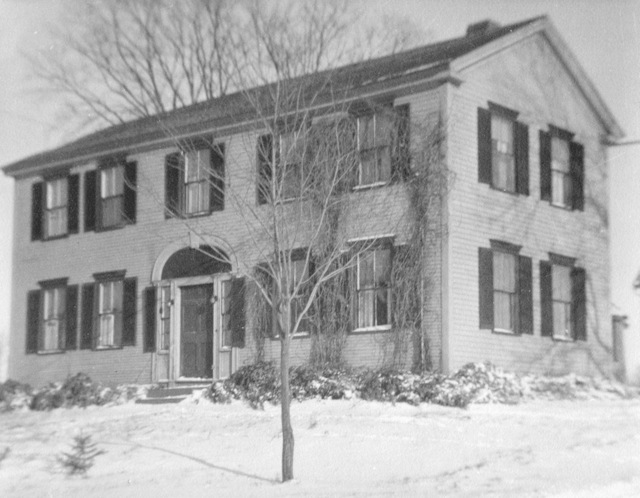
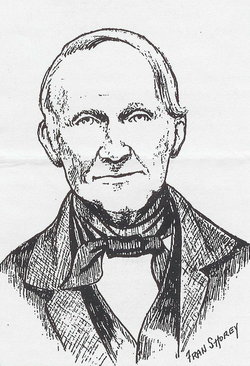
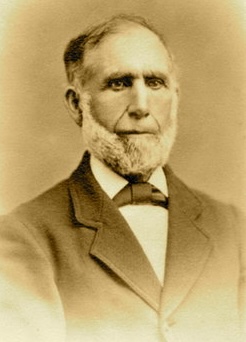

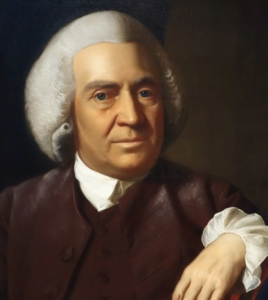
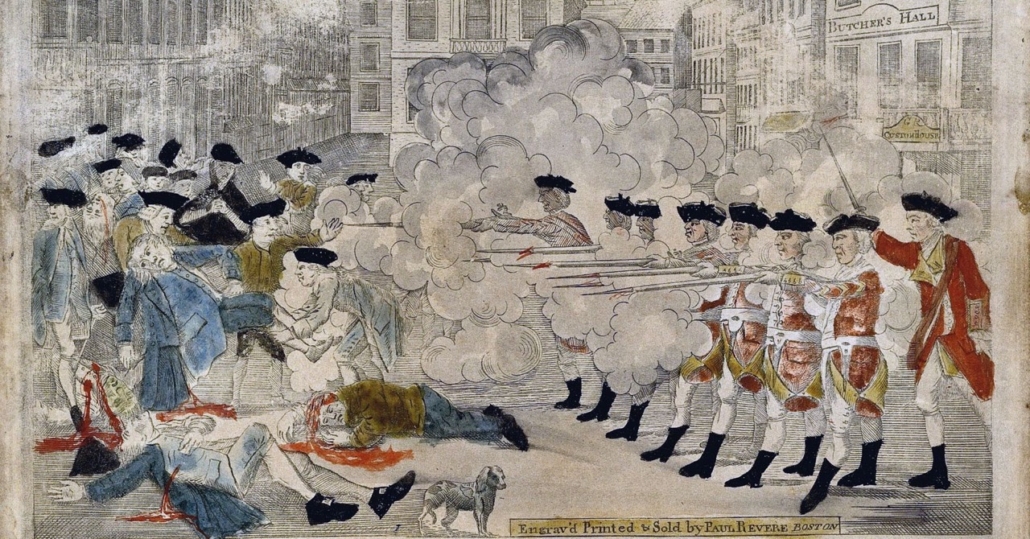
Leave a Reply
Want to join the discussion?Feel free to contribute!